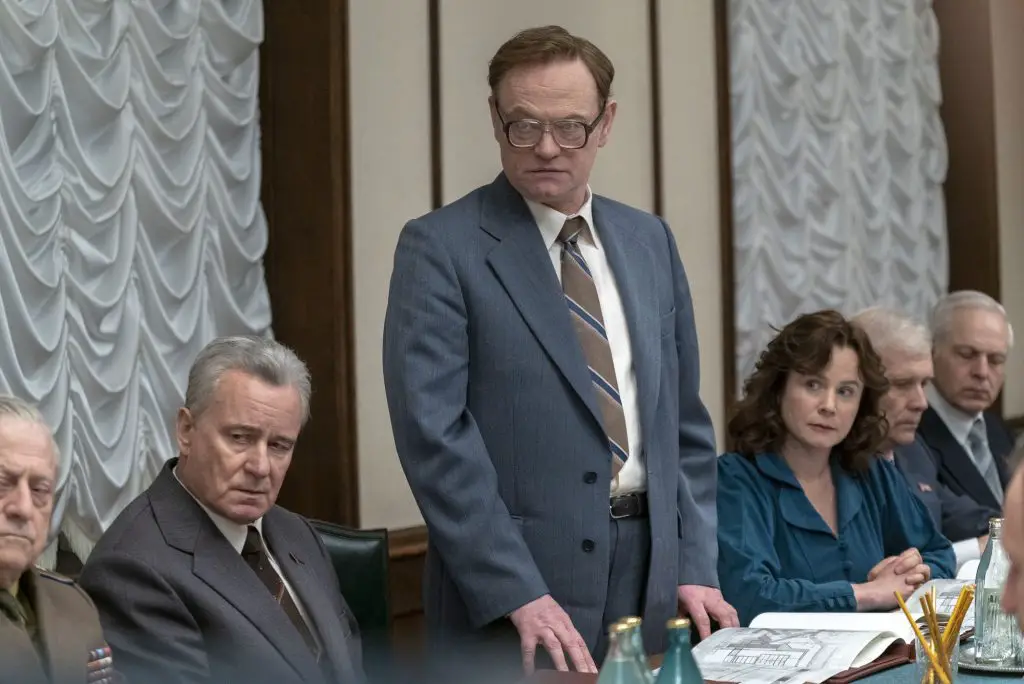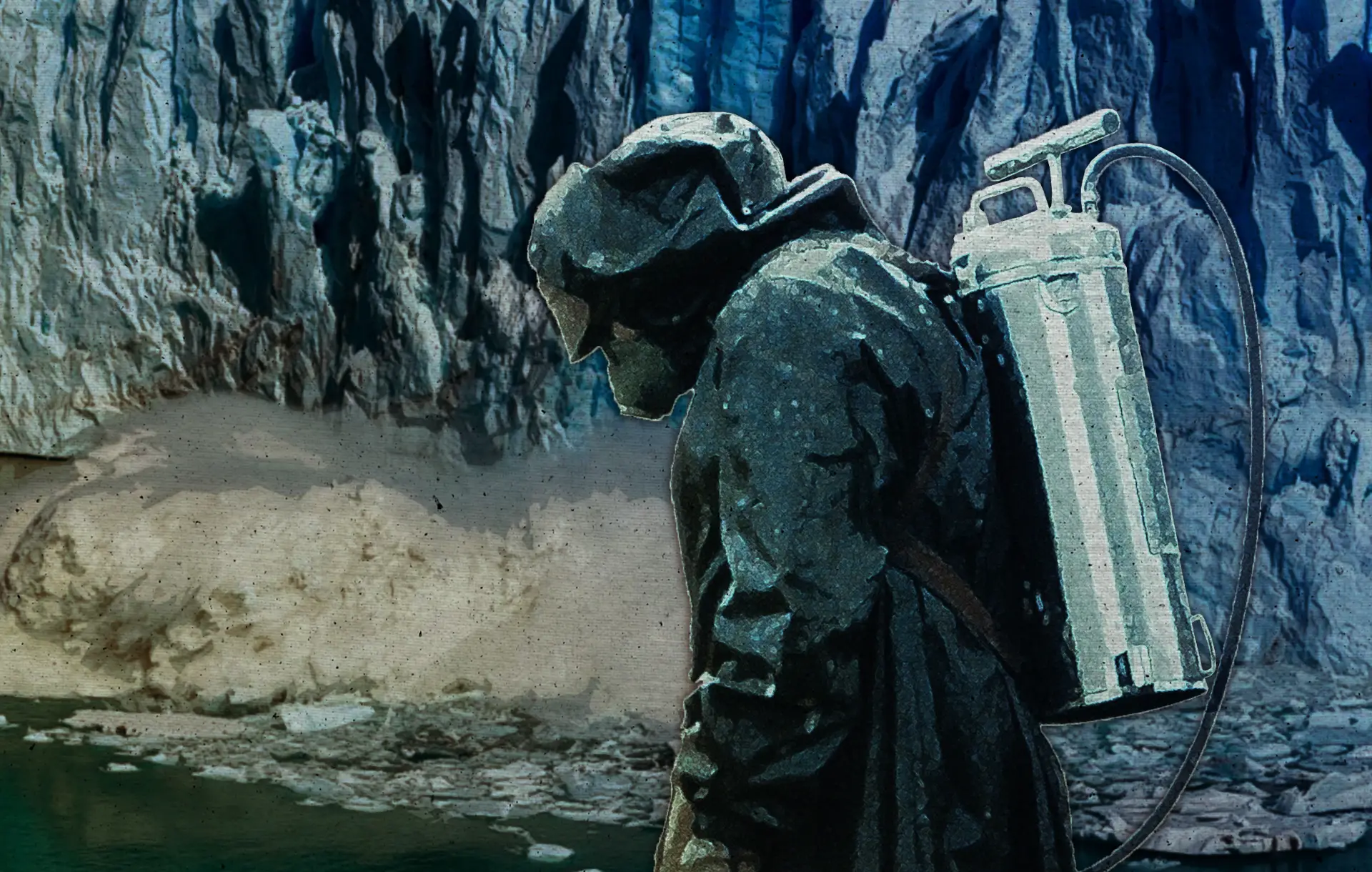HBO’s Chernobyl reverberated through the world earlier this year, digging up one of the most dramatic events in human history that could never become irrelevant, no matter how many years pass. However, the series’ timeless messages and themes seem particularly relevant in today’s day and age, amplified by the prospect of another existential crisis, looming large and unfathomable on the horizon – climate change, the sneakier and more subtle Chernobyl of our time.
Deceptive Beauty
Even from its very start, when people gather around at what is now known as the Bridge of Death to admire the sight of the explosion, oblivious to just how deadly its beauty is, the scene in Chernobyl is reminiscent of a paradox we experience today.
They say the night is the darkest before the dawn, but what about the day being the prettiest and most colorful before dusk? No expression, besides perhaps the quiet before the storm, captures this moment of deceitful peace. Because just as the explosion in Chernobyl may have looked mesmerizing at first from a distance, we also bask in the warmth and sunshine that linger deeper and deeper into the cold months of the year.
…we also bask in the warmth and sunshine that linger deeper and deeper into the cold months of the year.
Of course, uncharacteristically nice weather doesn’t necessarily carry a catastrophic significance, at least not of Chernobyl’s gravity, but the mere fact that we can’t simply and wholeheartedly enjoy it anymore speaks volumes to our status quo.
Abstract Threat
Something very telling of our collective perception of climate change has surfaced in various surveys – people tend to feel indifferent toward it because of its still- abstract nature. For most of us, so far, climate change, if palpable at all, has actually been pleasant for the most part. How are people supposed to think of longer summers as arguably humanity’s biggest threat and grasp the magnitude of its existential implications?
This psychology is eloquently depicted in a hard-hitting scene from the 4th episode of Chernobyl, in which a grandma is given her final warning to evacuate as she nonchalantly keeps on milking her cow. She tells the soldier warning her that she’s lived in the village her entire life, throughout which many soldiers before him have told her to leave in order to escape much more tangible foes like war and famine, foes that have taken the lives of members of her own family.
“My brothers never came home. But I stayed and I’m still here, after all that I have seen. So I should leave now, because of something I cannot see at all? No,” she answers without so much as a trace of doubt.
Who Pays the Price?
The future generations.
This injustice has been overtly covered in mainstream media, and while this theme might have been a little more subtle in Chernobyl, it was also brilliantly woven into the main narrative via Lyudmila Ignatenko’s character, the wife of Vasily Ignatenko, the fireman.
…was reminiscent of the grotesque way that a supposedly noble political system had turned on itself…
Pregnant Mrs. Ignatenko blatantly and continuously disregards doctors’ numerous orders not to physically interact with her husband because of the danger his high level of radiation posed to her fetus – an act that, as understandable as it may have been in the context of the dark and ignorant times, was also very selfish and driven by immediate impulses and desires.
The cost of Mrs. Ignatenko’s ignorance, or more precisely the currency which it was paid in – the death of her child, was eerily symbolic of today’s conversations surrounding climate change.
Governing Bodies’ Best Interests
When you draw the line, the disaster in Chernobyl, despite being the perfect storm, was also triggered and escalated by the blind submission to human greed, ambitions, and selfishness that ran rampant and unchecked through the governing bodies.
In fact, if you didn’t know Chernobyl was based on real events, you’d think the catastrophe was scripted as the perfect visual metaphor for the mutation that completely engulfed and reigned over those socialist political circles – the way in which the otherwise beautifully coordinated chemical processes, explained in the final episode, were thrown off balance and thrust violently in the worst possible direction was reminiscent of the grotesque way that a supposedly noble political system had turned on itself, as a compound reaction to all the lies and deeds by men, drunk on power.
And the perfect storm, both literally and figuratively, that we might have to face in our lifetime, isn’t that the compound result of human greed, drunkenness on power, and the unquenchable thirst for more? If anything, at least the events in Chernobyl were entirely the fault of men at the top, but when it comes to climate change, while world leaders bear the biggest responsibility for driving economic prosperity and consumerism blind to their costs, we all are also guilty of looking the other way, in the direction of our own immediate comfort, for far too long.

The Cost of Lies
Of course, the cost of lies is the show’s hard-hitting overarching theme, and being forged by such masterful storytellers, its significance and power aren’t limited to the despondent world of Chernobyl, but resonate far beyond it, years later – today.
…its significance and power aren’t limited to the despondent world of Chernobyl, but resonate far beyond it…
Without dwelling on conspiracy theories, who knows how much earlier the world could have been spurred to action against climate change, had it not been against the best interests of a handful of men in power? We’ll probably never know for sure.
Masterpieces are usually defined by their timeless messages, but what makes Chernobyl all-the-more special is that its message is not only timeless, but extremely timely as well, despite focusing on specific events that took place more than 40 years ago.




